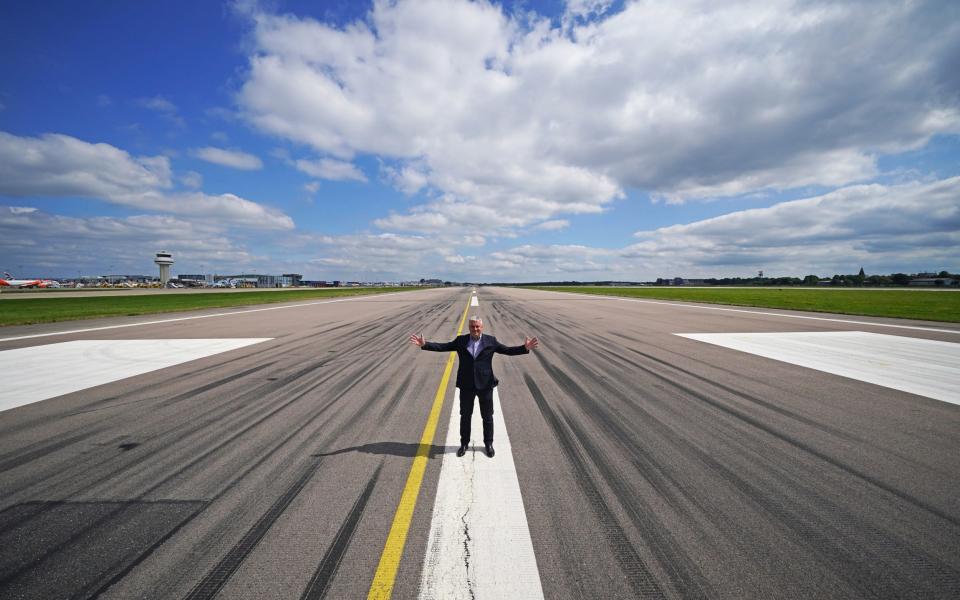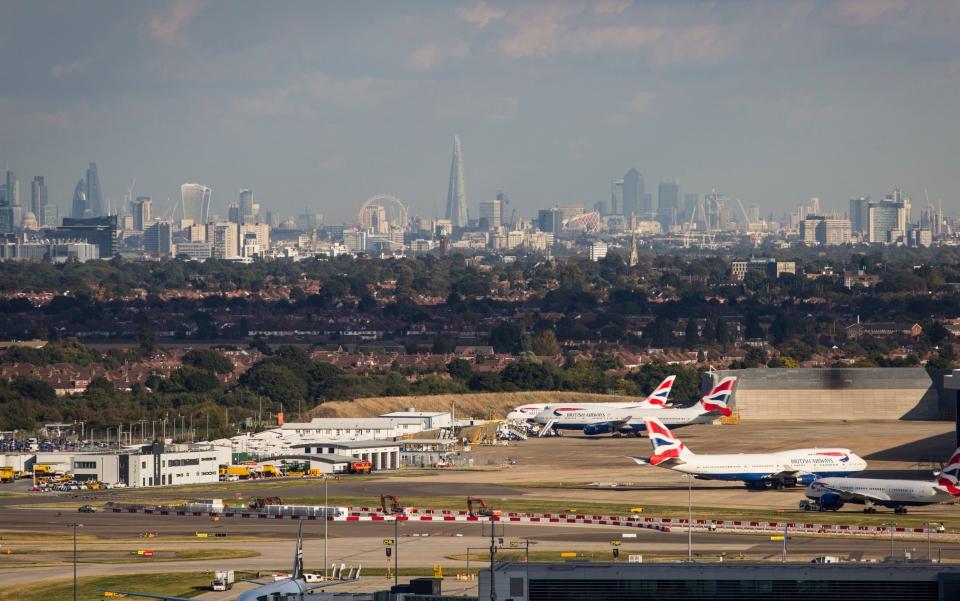Rishi Sunak’s tourism tax has left Gatwick at a “competitive disadvantage” to its overseas rivals, the airport’s chief executive has said.
Stewart Wingate, who has been in charge of Britain’s second-largest airport since 2009, said the end of duty-free shopping had hampered Gatwick’s ability to attract wealthy passengers and long-haul airlines from abroad.
He told the Telegraph that the tourist tax is hampering the hub’s push for growth, particularly as Gatwick tries to compete against European rivals including Madrid, Milan and Paris.
Mr Wingate is the latest senior business leader to weigh in on the debate over the Government’s eventual extension of tax-free shopping for tourists in 2020, making goods 20pc cheaper.
“Our position is that we, along with London and the South East, are at a competitive disadvantage because when the passengers think where should I go and which city should I choose, part of the decision making is the they can shop tax free,” he said.
“Some of these passengers want to buy a significant amount of goods. But if you want to come to the heart of London and shop for luxury goods, then you might want to think twice.”
Fresh criticism of the tourism tax, first introduced by Mr Sunak when he was chancellor in 2020, could reignite the debate as the Tories and Labor seek to do business ahead of the general election.
Mr Wingate said: “We will continue to say, whoever the Government is, that we feel we are at a disadvantage compared to other capitals.”
It comes as Gatwick embarks on its biggest expansion project for many years, with a price tag of £2.2bn.
London’s travel hub, which recorded 41 million passengers in 2023, is looking to increase its operations by converting its emergency airstrip into a regular runway, paving the way for more flights and passengers.
According to Mr Wingate and Gatwick’s planning application, this would be achieved by moving its emergency runway just 12 meters to the north, clearing enough space for its existing runway to operate separately.
This will pave the way for thousands of extra flights a year, prompting a barrage of criticism from residents and environmentalists.
Gatwick’s so-called Northern Runway proposal will increase capacity from 55 flights per hour to around 70.
Although this will inevitably lead to more emissions and noise, Mr Wingate argued that expanding Gatwick is one of the best ways to unlock growth and boost Britain’s attractiveness as an island trading nation. Bosses believe it will add £1bn to the region’s economy each year and create 15,000 jobs.
He said the expansion was vital as Heathrow’s third runway was still in a state of planning purgatory.


“At the moment, Heathrow is full,” Mr Wingate said. “And Gatwick is currently operating close to capacity in the peak summer months.
“For the country, this is certainly the fastest way to create a significant number of additional slots per hour.”
Mr Wingate, who previously headed Budapest Airport and Stansted before joining Gatwick in 2009, said his team’s praise was at the bottom of the copper over a seven-year period.
If the planning inspectorate and the Government give the green light for next year, Mr Wingate said Gatwick is ready to build immediately.
He indicated that the project will be fully financed through private investment from its owners Vinci Airports and Global Infrastructure Partners.
Unlike Heathrow’s proposed expansion plan, which has yet to be submitted and is estimated to cost around £14bn, Mr Wingate said Gatwick’s proposal is more modest and feasible.
“What I don’t want to do is to constantly compare ourselves to Heathrow,” he said. “Because they don’t seem to be working at Heathrow [third runway] scheme, but when they were it didn’t seem like it was fully costed.
“What we’re talking about here is certainly something that is within our ability to fund. By definition, the work we are doing is relatively simple.
“What’s the difference between Gatwick and Heathrow? Heathrow is behind a city of around eight million people, but our area is sparsely populated and rural.”


The viability of the project is strengthened by the fact that it will be located entirely on Gatwick land, he said, which mitigates levels of local opposition.
“We are not advocating buying anyone’s home or business,” Mr Wingate said.
“If you’re proposing something where you’re going to start disrupting rail lines or motorways or buying people’s houses, it’s going to be very expensive and complicated to deliver.
“What we are proposing is to build almost everything on the land we currently have.”
Although he stopped short of saying the project will help Gatwick leapfrog Heathrow in the coming years, Mr Wingate was vocal about his intention to lure back one of his rival’s main carriers: Virgin Atlantic.
Once a feature of Gatwick’s runways, Sir Richard Branson’s airline left the airport during Covid amid financial turmoil, basing its operations solely out of Heathrow.
Mr Wingate said he would welcome Virgin back “as soon as possible”.
Along with Virgin, Mr Wingate is also courting longer-haul carriers, with recent moves leading to the recruitment of Singapore Airlines.
“When I first got here, we had about 30 long-haul routes,” he said. “Stansted had zero and Heathrow had most. Today, I think we serve about 54 different destinations around the world.
“We are moving into Asia and India because we think they are the fastest growing long-haul markets. If we get a foothold in those markets now, then as they grow Gatwick will be a natural destination for them to serve London.”
However, to ensure London retains its crown as a global transport hub, Mr Wingate said policymakers must also do their part to help the industry. A good way to start is to end the tourist tax.
“I think London’s fundamentals are as strong as they’ve ever been,” he said. “But we have to take care of it and we have to understand who we’re competing against and what they’re offering.”